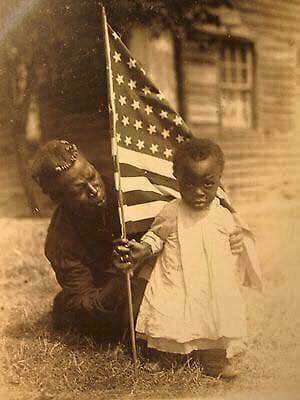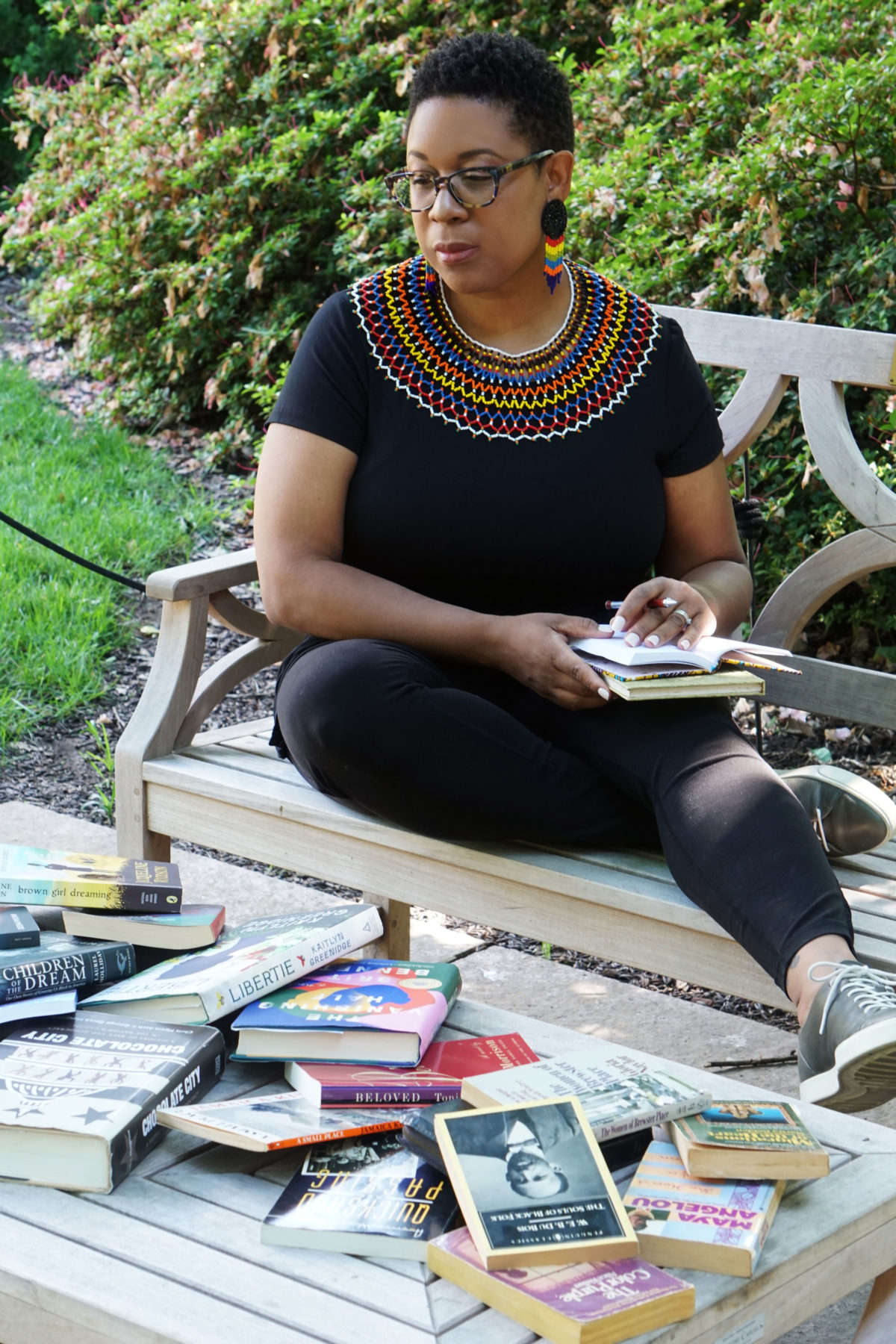On this day in which so many neighbors shoot fireworks, parents dress their children in the colors of freedom, and the nation indulges in its most conspicuous patriotism that heralds the United States of America as a beacon on a hill, I gnash my teeth along with so many Black mothers, that even in 2023, our lives are seen as expendable and our children as less than human. In this land wrested from the indigenous peoples and gifted to those claiming Manifest Destiny, life, liberty, and the pursuit of happiness remain an elusive aspiration for those on the losing end of white privilege and anti-Blackness.
Today, the words of civil rights and women’s rights activist Fannie Lou Hamer echo in my head, “Nobody’s free until everybody’s free,” as I meditate upon depraved indifference to Black lives buried deep in the marrow of this country. The murder of Ajike “AJ” Owens, the 35-year-old mother of four young children barely a month ago in Ocala, Florida is but one recent example. Sister Ajike was shot in cold blood by her neighbor Susan Lorincz for being a black mother called, once again, to run interference between the vile tongue and hands that would seek to do violence to the bodies and spirits of her babies. Our babies. We know the specifics of Ajike’s story and the universal truth within that experience: a fellow human being decided to sink to their most despicable instincts because they could, treating our children worse than they’d ever treat an orphaned dog. So many of us know the tiring drill of defending our children from racists when all we want to do is love on them and live our lives. On June 2nd, Ajike’s murderer robbed Ajike of her life and stole her out of the lives of her children. And in the four long days that followed this wanton act and preceded her arrest, she peddled the lie that she felt threatened, knowing it held more weight than the truth of her depraved and racist indifference to Ajike’s inherent human value.
A month before Ajike’s senseless murder, the world became aware of the untimely and tragic loss of Olympic medalist and world champion sprinter Tori Bowie, who passed away at the age of 32 years old, seemingly due to the pregnancy complication of preeclampsia in her eighth month. Sister Tori’s heartbreaking loss is but one in a long line of Black pregnant women–including prominent elite athletes Serena Williams and Allyson Felix–who have experienced a life-threatening pregnancy-induced illness. Unfortunately, Tori did not live to tell her story. Indeed, as the maternal mortality rate among African American women continues to trend upward, this alarming story of fatal and near-fatal maternal illness for black mothers isn’t ringing enough alarm bells. (Tori’s loss clawed at my heart in a personal way. I was 32 when my own first pregnancy required an emergency c-section because of my life-threatening battle with HELLP Syndrome at 24 weeks pregnant. My daughter, Grace, born weighing only a pound, passed away after a heart-wrenching four-day battle.)
Oh, to be a black mother.
Like other mothers, I have bandaged scrapes, dried tears, explained math problems, made dollars stretch, served as chauffer to my kids and their friends, retrieved errant soccer balls from the street or a neighbor’s yard, salvaged unsuccessful meals, weathered teen angst, and bought last-minute snacks for the school potluck. But as a black mother, I’ve also written strongly worded emails to school administrators about foolhardy school policies that trained brown-skinned kindergarten boys to walk around with their hands shoved deep into their pants pockets, teachers who casually called 2nd graders ‘little monkeys’ or counseled middle or high schoolers to replace the n-word in required texts with the word ‘friend,’ and the adultification of black girls which leads many to think that assaults on black girls’ bodies are the consequence of their ‘womanly wiles.’
Just yesterday, the eve of this holiday, my family had occasion to visit the plot of land at Thomas Jefferson’s Monticello plantation curiously named “Burial Ground for Enslaved People.” As I pondered the juxtaposition of this plot of unmarked graves so close to the grandeur of the residence for our country’s third president and author of the Declaration of Independence, I was pained by the historic example of disrespect Jefferson showed for the more than 600 people he compelled to serve him. Only stones and the advocacy of descendants of the enslaved forced the plot to be recognized as a burial ground at all. And though some names of enslaved people are sprinkled onto placards in the Monticello Museum, visitors can easily ignore the inconvenient history of slavery and the dehumanizing treatment of human beings by Thomas Jefferson and his fellow ‘founding fathers’.
As I think about the many families that will seek the perfect perch from which to view tonight’s fireworks in towns and cities across the country, I lament how the mundane stuff of child-rearing always requires the black mother to stand ready to defend her children’s humanity. I recall the mother at the Brooklyn Aquarium who intentionally rammed my two-year-old daughter’s legs with her toddler daughter’s stroller so her child could be first in line to pet a starfish, causing my daughter to fall and sustain a nasty gash. (Thirteen years later, she still has the jagged scar on her leg.) I recall the terse retort I had to conjure when a young woman asked my then nine-year-old son what he was “in for” when he and I stopped by our local police precinct to pick up a temporary parking pass for a dear friend who would soon need it for an upcoming visit. Whether a microaggression or a flagrant assault, these injuries inflicted on our children’s psyches are designed to diminish them and us as their first and fiercest protectors.
Celebrating this country’s birthday feels like walking behind the casket in a New Orleans second-line procession. The music blares and our bodies move, but our hearts are pierced through with loss. I grieve for my fellow mamas who mourn children lost to gun violence and childbirth casualties. I grieve the children who mourn mothers gone too soon, like Ajike Owens. And I grieve the countless Black mothers claimed by COVID, domestic abuse, underdiagnosed illness, and the stress of living in a world that sees us as a nuisance if it sees us at all.

